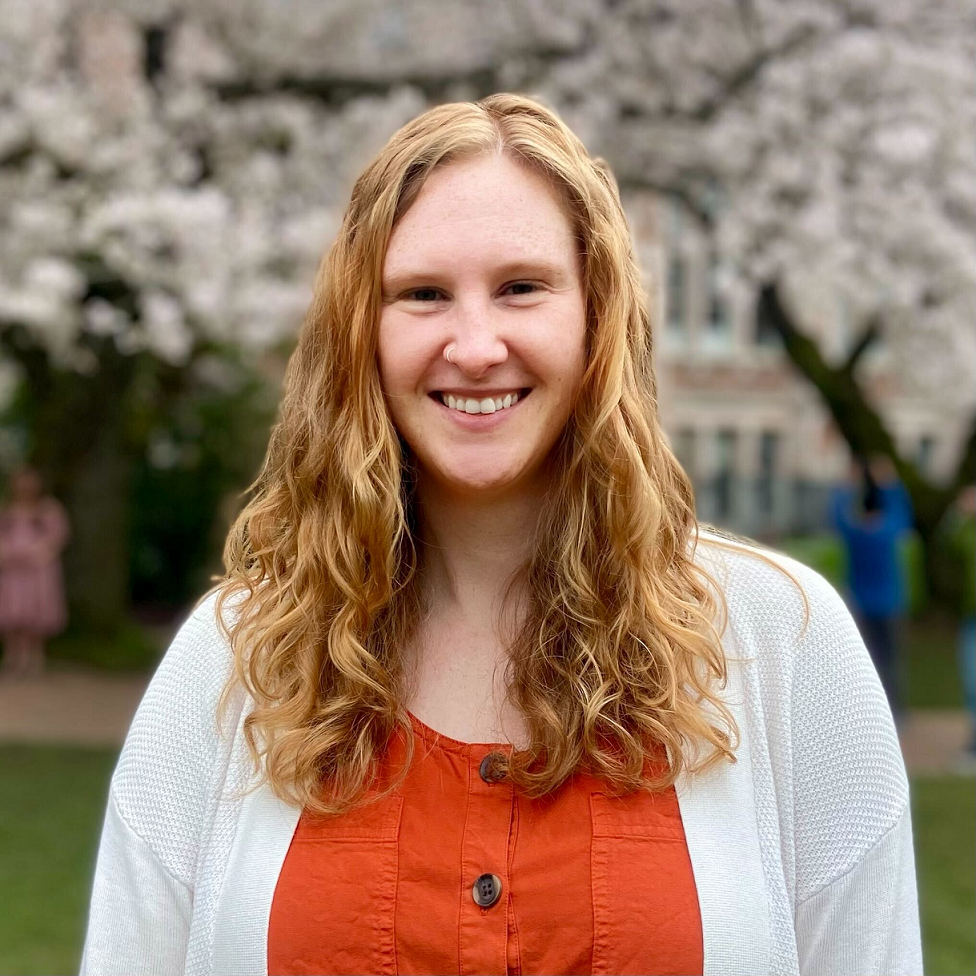OUR TEAM
Kim Ingraham, PhD
Principal Investigator
Email: kingra [at] uw [dot] edu
Prof. Kim Ingraham (she/her) is an Assistant Professor of Electrical & Computer Engineering and an Adjunct Assistant Professor of Mechanical Engineering at UW. She is affiliated with UW CREATE (Center for Research and Education on Accessible Technology and Experiences) and is a core faculty member of the AMP Lab. Prof. Ingraham directs the (yet-to-be-named) Ingraham Lab, focused on advacing human mobility using assistive robotic devices, such as exoskeletons, prostheses, and powered wheelchairs.
Prof. Ingraham has an interdisciplinary training background, and has earned degrees in Biomedical Engineering (BE 2012, Vanderbilt University) and Mechanical Engineering (MS, PhD 2021, University of Michigan). She was a CREATE postdoctoral fellow in Rehabilitation Medicine at the University of Washington. Prior to beginning graduate school, she worked as a Research Engineer at the Shirley Ryan AbilityLab (formerly the Rehabilitation Institute of Chicago).
In her past professional and doctoral research, Prof. Ingraham has developed and evaluated physiologically-inspired control systems for a variety of assistive devices, including powered lower-limb prostheses, robotic exoskeletons, and powered wheelchairs for young children with disabilities. Prof. Ingraham was an NSF graduate research fellow, and received Honorable Mention for the 2021 Richard and Eleanor Towner Prize for Outstanding Ph.D. Research at the University of Michigan.
PhD Students
Annika Pfister - PhD Student, Electrical & Computer Engineering
apfist8 [at] uw [dot] edu
Annika Pfister (she/her) is a PhD student in the Electrical & Computer Engineering department at UW. She earned her BA in Neuroscience at Wellesley College, along with a Certificate of Engineering from Franklin W. Olin College of Engineering, in 2023. Annika's undergraduate research involved electromyography technique and electrode design, as well as adaptive closed-loop control systems. Her research interests include (neuro)prosthetics, user-collaborative engineering, and closed-loop sensorimotor control. LinkedIn
Zijie Jin, MEng - PhD Student, Electrical & Computer Engineering
zijiejin [at] uw [dot] edu
Zijie Jin (he/him) is a PhD student in the Electrical & Computer Engineering department at UW. Zijie has an interdisciplinary background with BEng in Chemical Engineering (2019, McGill University) and MEng in Biomedical Engineering (2022, McGill University). Zijie's undergraduate research involved developing hydrogel-based systems for examining cell spatial secretomics and his master's thesis was on developing miniaturized in vitro models for studying gut microbiota. Before joining Ingraham Lab, Zijie worked as a RA at Polytechniques Montreal on exoskeleton control and simulation. His current research interests include design and control of exoskeletons and prostheses for rehabilitation and human augmentation. LinkedIn
Undergraduate Students
Claire Feddema - Undergrad, Mechanical Engineering
Claire Feddema (she/her) is an undergraduate student in the Mechanical Engineering department at UW, graduating Spring 2024. Prior to joining the Ingraham Lab, she was a member of the UW Formula Motorsports team, designing and building a four wheel drive electric formula-style race car. Claire’s research interests include mobility devices and prosthetics/orthotics, specifically for children and young people
Mia Onodera - Undergrad, Electrical & Computer Engineering
Mia Onodera (she/her) is an undergraduate student in the Electrical and Computer Engineering department at UW, graduating Spring 2025. She has previous research experience in Chemical Engineering, where she studied morphological characteristics of microglia to study the effects of brain nano therapeutics. Mia plans to pursue a PhD, with a research interest that centers around the intersection of accessibility and signal processing.
Are you interested in joining the team?
We are always looking for motivated students from multidisciplinary engineering backgrounds (electrical, mechanical, biomedical, etc.) to contribute to the lab’s research goals. Students should have a strong interest in understanding human movement and using robotic systems to advance human mobility in the real world.




